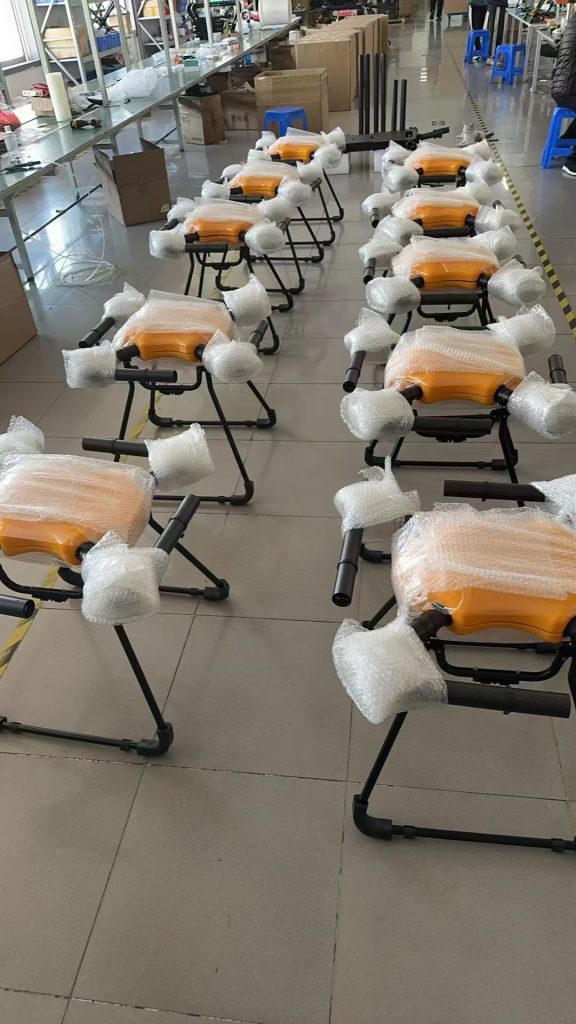
Wings Over the Accursed Mountains: How Chinese Agri-Drones Are Rooting Into Albania’s Farming Heartland
Albania’s countryside feels like a storybook—terraced hillsides draped in olive groves, valleys humming with vineyards, and shepherds guiding flocks past stone-walled villages. For centuries, this Balkan nation’s agriculture has been sustained by tradition: family plots handed down through generations, hand-tended crops, and a deep bond between farmer and land. Yet today, that legacy faces new tests. Small-scale farms (most under 5 hectares) strain under labor shortages as youth migrate to cities. Erratic rainfall threatens olive and tobacco harvests. And as Albania eyes EU accession, stricter environmental rules demand smarter ways to grow food without depleting the soil or water. It’s here, amid these shifting tides, that an unlikely tool is taking flight: agricultural drones imported from China, quietly rewriting how Albanian farmers work the land.
Albania’s Farms: Pride and Pressure
Albania’s agriculture is a patchwork of the iconic and the intimate. In the north, the “Accursed Mountains” (a misnomer for their raw beauty) cradle sheep farms where lamb and cheese are staples. In the fertile Myzeqeja Plain, near Lushnjë, golden wheat sways beside rows of bright red paprika. Along the coast, near Durrës, vineyards produce robust reds and crisp whites, while olive trees—some over a century old—yield oil prized in Italian kitchens.
But for all its charm, farming here is hard. “My father farmed with a horse; I use a tractor,” says Mark, a 48-year-old tobacco grower in Berat. “But now? My two sons work in Tirana. I’m alone with 3 hectares of tobacco plants. Hand-spraying pesticides takes days—by then, the bugs have moved on.” Labor gaps are compounded by climate chaos: last summer’s drought shriveled 20% of the nation’s olive crop, while sudden floods in Shkodër washed away topsoil. “We need to work with the land, not against it,” adds Elena, who tends a family vineyard in Vlorë. “But how?”
Drones: Built for Albania’s Bumps and Boundaries
When we first considered exporting to Albania, we didn’t just see a market—we saw a landscape that demanded ingenuity. Albania’s terrain is a mix of steep hills, narrow valleys, and small, irregular plots—hardly ideal for large ground machinery. Our drones, designed in China’s agricultural tech hubs, were built for exactly this.
Take their agility. With a 10-kilogram payload and a 15-minute flight time per battery, they weave through olive groves and around stone walls without damaging crops or infrastructure. “In the north, fields are carved into mountainsides,” explains our agronomist, Luan, who spent months in Albania testing prototypes. “Our drones hover close to the ground, mapping each row individually—something a tractor or manual spray can’t do without wasting product.”
Precision is key. Multispectral sensors detect early signs of disease in tobacco leaves or water stress in olive trees, flagging issues before they’re visible. Variable-rate spraying then applies chemicals only where needed, slashing use by up to 35%. For Mark, this meant rethinking his entire pesticide routine. “Last season, I sprayed the whole field every 10 days. Now? The drone shows me exactly which plants are infected. I treat just those spots. Less waste, same healthy tobacco—and I’m home by evening instead of working till midnight.”
Ease of use was another priority. Many Albanian farmers aren’t tech-savvy, so we stripped away complexity: one-touch “crop scan” buttons, pre-loaded flight paths for tobacco and olives, and training in Albanian (with local agronomists leading sessions). “I thought drones were for engineers,” admits Elena, laughing as she demonstrates her drone’s app. “But this? It’s like using a smartphone. I check the health map, tap ‘spray,’ and watch it work. My hands stay clean for the first time in years!”
From Boxes to Bonds: Building Trust in the Village Square
Shipping drones is easy; earning trust takes time. We learned that Albanian farmers value relationships as much as results. So we partnered with local cooperatives, like the Shoqëria Bujqësore e Beratit, to host workshops in village squares, under chestnut trees. Over raki and homemade byrek (savory pastry), we taught farmers to calibrate sensors, read spray reports, and swap tips. “At first, some called it ‘Chinese toys,’” says Gjergj, the cooperative’s head. “But when Mark showed his tobacco yield up 20%? They crowded around his phone to see the data.”
Locally, we stock spare parts in a warehouse near Tirana, ensuring 48-hour repairs. When a drone crashed into an olive tree during a test flight last spring, our team flew in from China to train Gjergj’s nephew on fixes—no delays, no bureaucracy. “You didn’t just sell us a machine,” Gjergj says. “You stayed. That matters.”
Stories Taking Root
Change is already blooming across Albania:
-
Tobacco Fields: Mark now uses drones to map soil pH, applying fertilizer only where deficient. “My costs are down 25%, and my tobacco grades higher,” he grins. “My sons even video-call to ask about the data. Maybe they’ll come home sooner.”
-
Olive Groves: Elena’s farm cut pesticide use by 40%, meeting EU eco-standards. “Buyers in Greece notice,” she says. “They pay a premium for ‘drone-tended’ oil.”
-
Shepherd’s Helper: In the north, Luan (our agronomist) works with shepherds to use drones for livestock monitoring. “They track stray sheep in the mountains now—no more hiking for hours. The drone is their new dog.”
More Than Exports: A Shared Harvest
What began as a trade deal has become a partnership. Albanian farmers teach us about their unique needs: how drones handle strong Adriatic winds, which crops (like sour cherries) need gentler spray settings, even which colors blend best with their fields (earthy brown, not industrial silver). In return, we’re refining our designs—larger tanks for vineyards, louder alarms to scare off birds—to better serve the Balkans.
As Albania progresses toward EU membership, and climate pressures mount, agri-drones offer a bridge between tradition and progress. They’re not replacing tractors or grandfathers’ wisdom—they’re amplifying it.
So when you next see a drone gliding over Albania’s olive groves or tobacco fields, know this: it’s more than technology. It’s a thread—stitching together a nation’s farming soul, Chinese innovation, and the grit of Albanian farmers, all working to ensure the land keeps feeding families, for generations to come.
After all, the best advancements don’t erase the past. They help it grow.
THE END

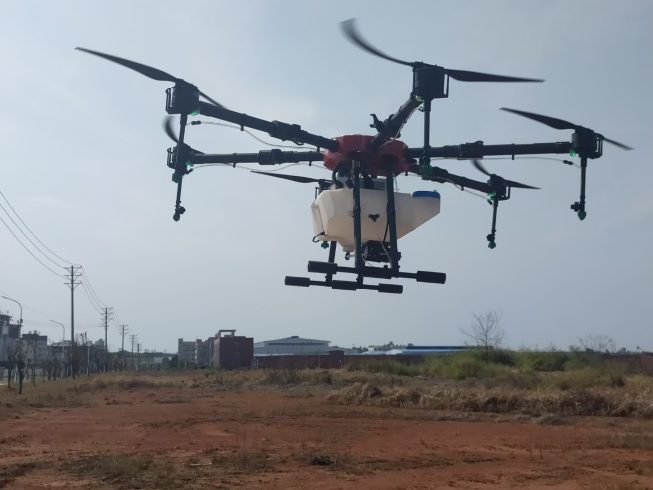
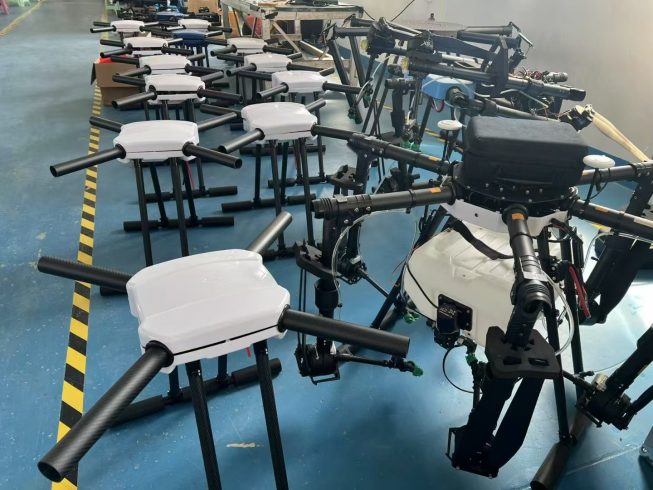
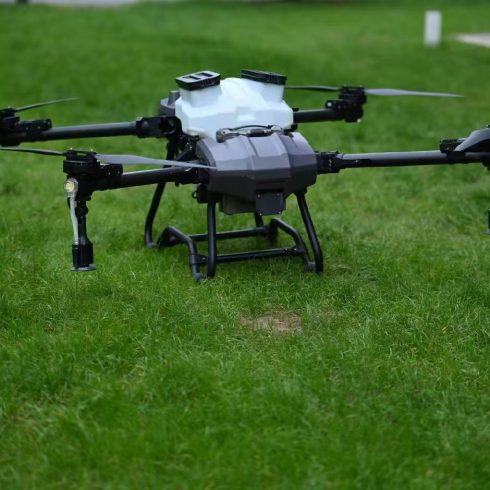

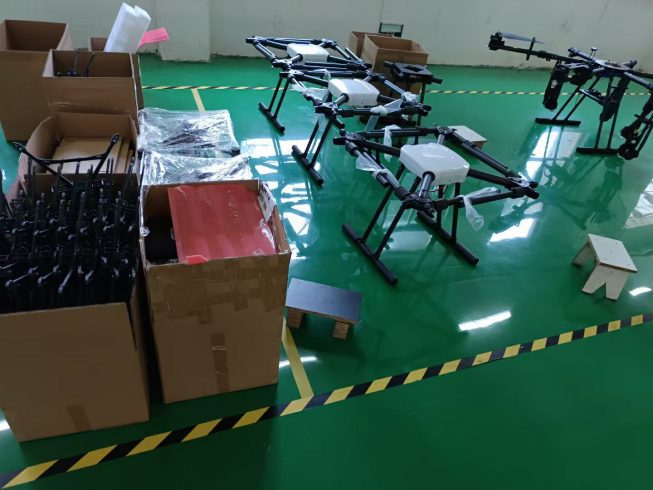

暂无评论内容